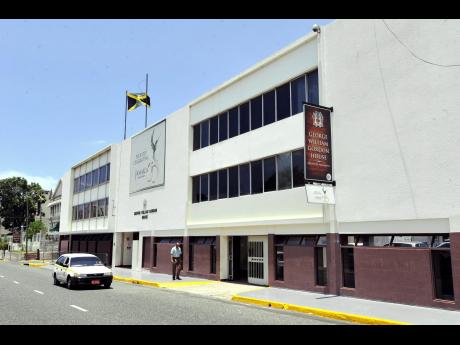Andre Haughton | ‘$1.5m policy weak on its own’
What are people anticipating from the Budget today?
Today, the Government announces the highly anticipated tax revenue package that will dictate the country's fiscal policy stance for the year 2016-2017.
Most people are eagerly awaiting the announcement of the increase in the income tax threshold from $592,300 to $1.5 million to provide PAYE relief for persons earning $1.5 million or less; giving those who earn the maximum of $1.5 million an extra $18,000 more on their disposable net income per month.
The expansionary fiscal policy seems to have been designed to influence economic activity from the demand side by transferring money from savers (those who earn more than $5 million) to spenders ( those who earn less than ($1.5 million), assuming that those in the lower-income bracket spend their excess income locally.
What impact is this likely to have on the economy?
Demand-side policies like these are very welcome, especially if the country has been in a recession and/or have excess capacity to produce. Such demand-side policies aided the US to escape the Great Depression in the 1930s, where production and productivity responded to the increase in consumer demand. Now, with Jamaica's high propensity to import, not all the increase in income will be spent locally, especially if the country cannot respond by producing what is necessary to satisfy consumer demand.
If this is the case, increase in income will lead to increase in imports, with little or no real change in local economic activity. Fundamentally, though consumer spending is important, it is through savings to invest that countries grow. It doesn't grow through simply spending.
Countries that have been able to increase GDP growth from one period to the next are countries that have been able to save to increase production.
The policy is weak on its own.
Is the policy feasible in the way it was originally proposed?
No, the policy is infeasible in the way it was proposed initially, given Jamaica's fiscal position. It will lead to a budget shortfall of over $10 billion, which the Government will have to find elsewhere.
If introduced in its original fashion, it will create income tax-collection problems for the Government as employers and employees juggle their salary and wage payments around the lower bound of the threshold and find creative ways of avoiding taxes. The research has shown that gaps, or points of discontinuity, between thresholds will create tax-collection problems similar to the case of Pakistan, where people simply move to a lower tax bracket to receive a higher pay. In the case of Jamaica, those earning up to $1.8 million can get a higher net pay if they lower their income to $1.5 million. The same will happen for those earning more than $5 million per annum. It will be very difficult for the country to maintain different thresholds for different income groups.
Other business leaders also support the notion that the policy is infeasible in the way it was originally proposed. This policy was supposed to take effect by April 1, 2016, but has been delayed to be announced in the Government's Budget presentation.
Originally, the JLP proposed to maintain the current threshold of $592,300 for persons earning more than $1.5 million, while implementing a new threshold for those earning $1.5 million.
What are the possible adjustments?
To mitigate all the handicaps associated with different thresholds, it is better to maintain one threshold for all income groups. However, a threshold of $1.5 million for everyone will result in a larger deficit to be filled, due to less revenue anticipated. Seventy-two per cent of the tax-paying population earn less than $1.5 million. As a result, the PAYE burden in this case will be borne by just 28 per cent of the tax-paying population. The recommendation here is to move the threshold - to at most, $1 million - in the initial phase. This will still be a burden, but it will be a smoother transitioning policy as tax revenues respond, and gradually as the Government finds more creative ways of earning revenue.
What recommendations do I propose to the Government?
1. Increase the threshold to $1 million at most for everyone, no point of discontinuity in the threshold.
2. Provide incentives to increase the local share of input into production processes.
3. If inputs cannot be sourced locally, provide a means through which producers can access these imported inputs at stable prices so that they can plan properly.
4. Invest in economic research.
5. Use the research from economists who understand the country-specific heterogeneity before making policy decisions.
6. Make sure that the lower global oil prices are being transferred to local producers and consumers to help reduce their cost of production.
7. Whatever deals are being negotiated to extract minerals from the earth, make sure the products are not exported in their primary stage, make sure any vertical diversification occurs here first.
The country is in a critical state. Let economics guide the politics and not the politics guide the economics.


